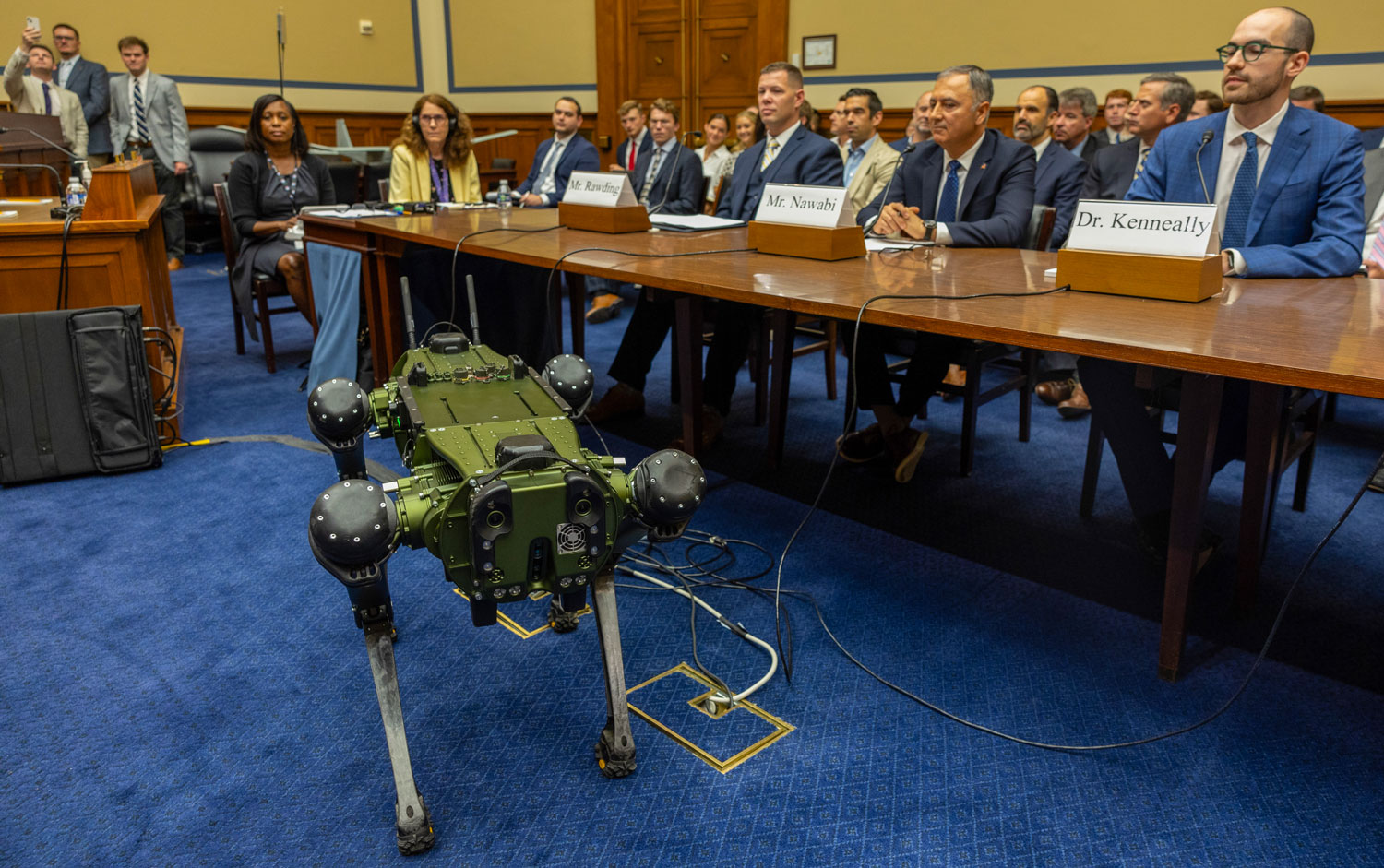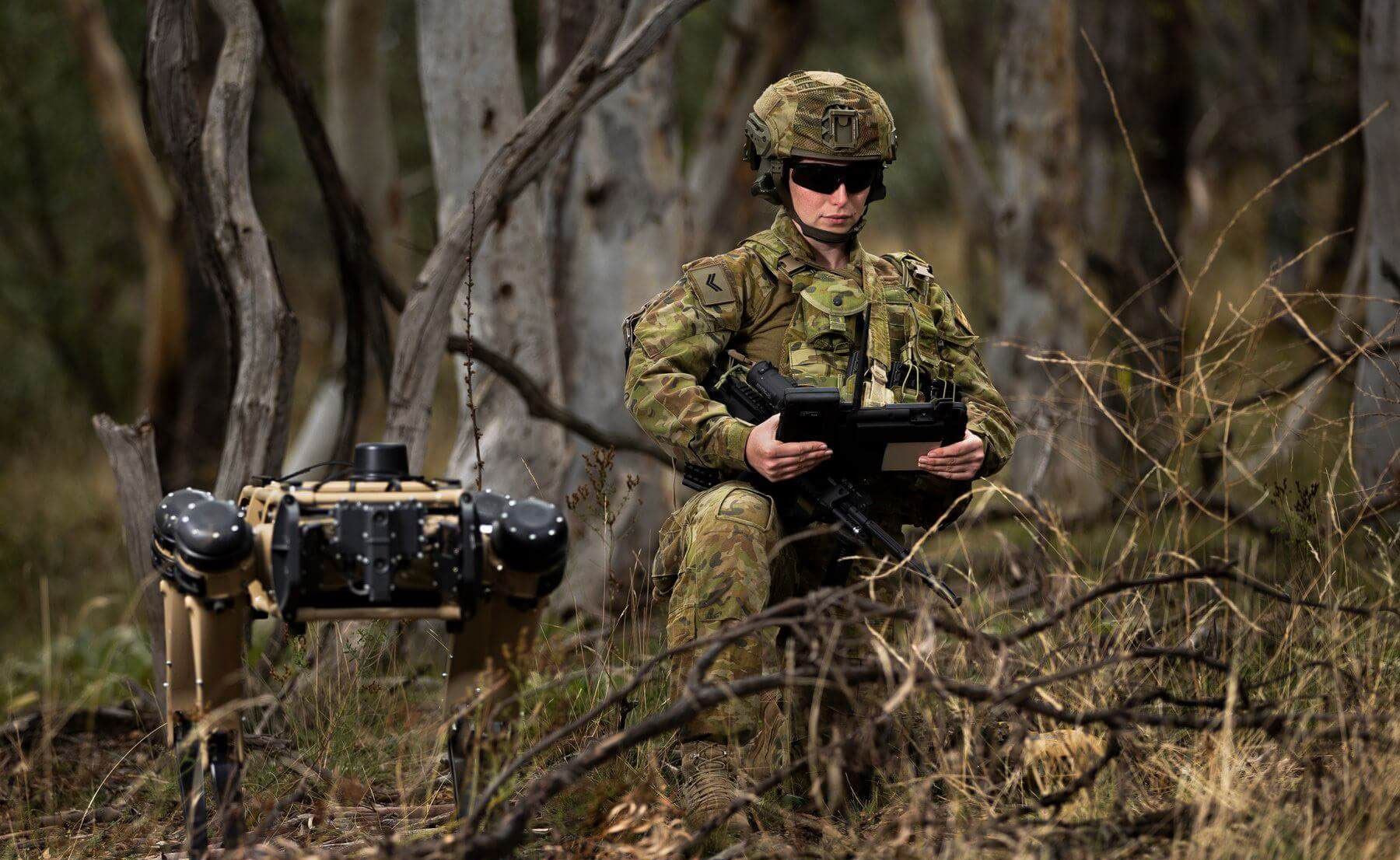House GOP discusses use of robot dogs to patrol US borders
The United States Department of Homeland Security caused a stir last February when it revealed that it was exploring deploying robot dogs on the U.S./Mexico border.
“The southern border can be an inhospitable place for man and beast, and that is exactly why a machine may excel there,” the DHS’s Brenda Long said at the time. “This [Science and Technology Directorate]-led initiative focuses on Automated Ground Surveillance Vehicles, or what we call ‘AGSVs.’ Essentially, the AGSV program is all about…robot dogs.”
The story raised the ire of several Democratic politicians, including New York Congresswoman Alexandria Ocasio-Cortez, who tweeted, “It’s shameful how both parties fight tooth + nail to defend their ability to pump endless public money into militarization. From tanks in police depts to corrupt military contracts, funding this violence is bipartisan + non-controversial, yet healthcare + housing isn’t. It’s BS.”
Last week, the subject — and the robotics firm behind it — were once again top of mind on Capitol Hill. A House GOP Cybersecurity, Information Technology and Government Innovation hearing titled “Using Cutting-Edge Technologies to Keep America Safe” gathered together representatives from a number of defense-related technology firms. The list included Ryan Rawding of biometric verification firm Pangiam, Wahid Nawabi of drone defense firm AeroVironment, Benjamin Boudreaux from the RAND Corporation and Gavin Kenneally, the CEO of Ghost, whose robot dogs have been featured in the trials.
Ghost demoed its Vision 60 robot for the panel during Kenneally’s presentation. “Looks like my high school algebra teacher,” one member of the committee inexplicably quipped. Another added, “like an Avengers movie right now.” Congresswoman Marjorie Taylor Greene called the demo, “really incredible, absolutely intriguing.”
Missouri Congressman Eric Burlison noted, “a few house Democrat members reportedly wrote to the US Customs and Border Protection last year expressing concerns about that robotic dogs could pose a lethal threat to migrants and Americans. How legitimate is that concern?”

WASHINGTON, DC – JUNE 22: Gavin Kenneally, Chief Executive Officer at Ghost Robotics speaks as Vision 60 UGV walks in during a House hearing at the US Capitol on June 22, 2023 in Washington, DC. The House Committee on Oversight and Accountability Subcommittee on Cybersecurity, Information Technology, and Government Innovation met to discuss the use of technology at the US Border, airports and military bases. (Photo by Tasos Katopodis/Getty Images)
The executive responded, “The use case for the robots at the border is to collect data. You can either look for illegal drug trafficking by adding sensors to detect for that, or you can add infrared or thermal cameras, which let you pick up human or other animals’ thermal signatures. The robot is really a detection system, which will then actually be used to save lives. There’s hundreds of deaths every year from drowning or getting stuck trying to cross the border.”
In October 2021, the Philly-based startup made national headlines when images emerged of one of its robots sporting a remote-controlled sniper rifle designed by a company called SWORD. At the time, then-CEO Jiren Parikh told TechCrunch the system was a “walking tripod” in reference to the company’s apparent hands-off approach to payload — weaponized or otherwise.
The subject of weaponization briefly came up during the hearing.
“[A]s the world progresses into stages that could be going to more wars — especially given the Ukraine and Russian war that’s going on right now — I’d like to ask each of you how we can make sure that we prevent any types of technologies or robotics like this to ever be used as weapons against people,” Greene said. “And I think that’s extremely important. Again, it’s not weaponizing technology we want to see happen ever, and I would like to see countries around the world make agreements to this, especially with emerging incredible inventions. We don’t want to see them turned into something that would kill people.”
The Georgia congresswoman didn’t ask the question directly, however, instead pivoting to one about preventing cybersecurity attacks.

Image Credits: Ghost Robotics
“The robot, the way we’ve built it, it’s effectively a server on legs, so we’re able to use standard best practices to lock down the robot as much as possible, using firewalls,” answered Kenneally. “Because of the sensitive nature of our customers, all of the data that the robot collects is stored locally.”
New York Congressman Nick Langworthy, meanwhile, asked whether the robot could be deployed on the U.S./Canadian border.
“Yes, absolutely,” Kenneally responded. “We also have built these robots very purposefully to go in environments that are incredible harsh and hard for humans to traverse. We’re able to operate the robot down to -40 Celsius or -40 Fahrenheit. It’s also sealed, so it can work in all kinds of different weather conditions.”
House GOP discusses use of robot dogs to patrol US borders by Brian Heater originally published on TechCrunch
from TechCrunch https://ift.tt/iELvtG5
via IFTTT
Comments
Post a Comment